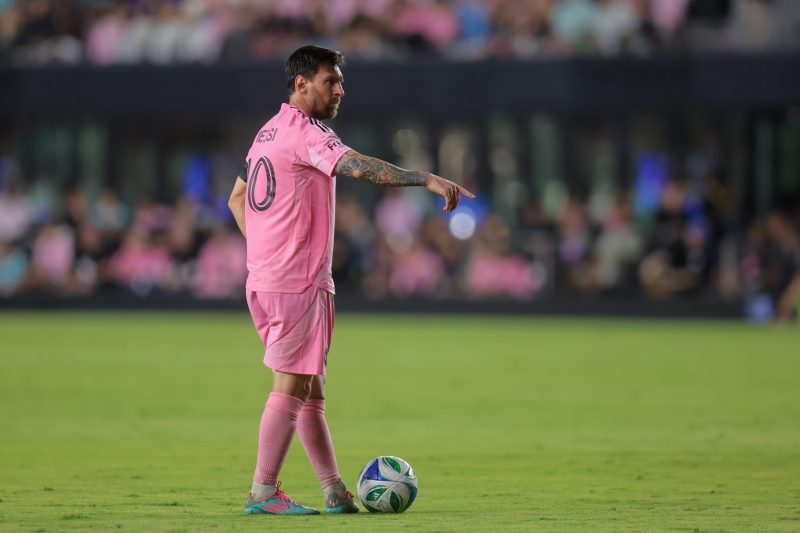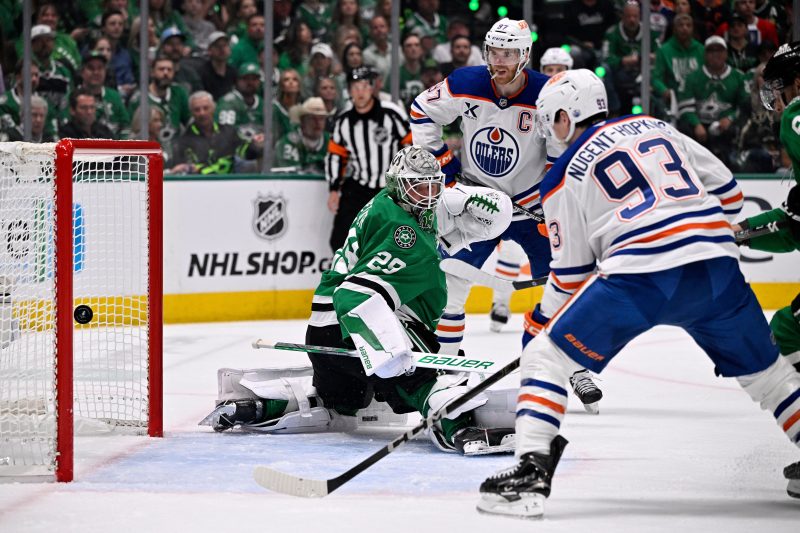How Thunder’s ‘intensity’ is wearing down Timberwolves in West finals

OKLAHOMA CITY — Jaden McDaniels’ fourth-quarter flagrant hardly required a body language specialist. Two hands and a thrust is a shove, the universal sign for frustration — the most telling league wide symptom that the Thunder defense has seeped into the bloodstream.
Other symptoms include but are not limited to: hands flailing or shoulders shrugging in the direction of Scott Foster, seeing six heads instead of the three-headed snake that OKC’s big 3 was on Thursday, a 118-103 Game 2 Thunder win, and a convincing two-game deficit in these NBA Western Conference finals.
Through two games, the toxicity of the Thunder’s all-time defense has bubbled. Third quarters have come strapped in, delivered by lethal injection. The runs, crushing when they happen, feel inevitable for OKC, even so deep into these playoffs.
They know it. They’ve weaponized it.
“Our intensity and aggressiveness can wear on you,” veteran Alex Caruso said. “Whether you’re physically aware of it or mentally aware of it.
“By the time we bring in our second unit, first unit’s already pushing. And then you bring in me, Cason (Wallace), and keep one of the bigs out there. It’s like you have a whole new starting five defensively.”
The margin of error in this series is seemingly as small as it’s ever been vs. this Thunder squad. Thursday’s third quarter run was 25-6, a third quarter with all the same furiously forced turnovers. Strips from Minnesota’s helpless hands.
Nothing tipped the building over quite like Wallace’s late quarter lob to Chet Holmgren, who leaped as if he swung from a branch in order to extend his frame and slam it home.
Of all the things that the Wolves’ odds are hinged on, very little is swinging their way. It was meant to outrebound the Thunder; OKC’s 14-12 edge in second-chance points isn’t helpful. Not an exemplary ball control team entering the series, its best bet was to inch closer to the median; the Thunder leads the points-off-turnovers count 52-20 this series.
Minnesota digested the Game 1 film and seemingly set out to force the Thunder into more jumpers. OKC attempted 12 more 3s (making just 27.3% of them), and notably depended on an abundance of midrange jumpers.
MVP Shai Gilgeous-Alexander lives there, fully licensed. Jalen Williams has similar credentials, though he bordered on audacious Thursday. He was 10 of 14 on 2-pointers. The wrist snapped in all the right ways en route to 26 points, 10 rebounds and five assists.
Between the barrage of jumpers, OKC still managed to torment Minnesota on the interior: 22 more points on 2s, and 16 more points in the paint on 69% shooting.
The world is seeing just exactly how SGA and Williams live.
Minnesota’s defensive intentions have mostly been pure, too. It played its zone with the conviction of a truck driver already five Modelos in. It still feels mighty in man coverage. Rudy Gobert still leaps toward the top of the arc when the finger is wagged at him.
But the Thunder’s intentions have been sinister.
They’ve trained their noses like airport canines for the aroma that came with the third quarter. You smell blood in the water, you follow the scent. In this case, that meant forcing Julius Randle turnovers and flipping Minnesota on its head.
Through two wins, OKC is outscoring Minnesota by 28 points in the third quarter. Even when Minnesota threatened a 24-point lead, trimming it to 10 in the fourth, the Thunder budged about as far as Foster would on a coach’s challenge.
Second halves versus the Thunder have become wastelands. It has these playoffs — and Denver specifically — to thank for that. Caruso admits that Game 1 of the West semifinals, as well as the late-February meltdown versus the Wolves, both float atop the memory bank at this juncture.
“I don’t know if we get the due credit we deserve for how we’ve learned and how we’ve grown as a team,” Caruso said.
Stepping into Oklahoma City means being prepared for the blender. Nikola Jokic was. His hide even dulled the blade at times. He provided OKC a dilemma it hadn’t seen in the series before or since, a player needing the attention of at least two defenders at most times.
Stellar outside shooting has long been wishful thinking for these Thunder during its postseason run. It hasn’t needed it, anyway. And Minnesota has yet to make OKC truly budge. To change Gilgeous-Alexander’s gravitation toward the line. To change the Thunder’s La-Z-Boy comfortability in running the Wolves’ pockets.
McDaniels seemingly feels all of it. He’d have maybe flipped a table over. But Gilgeous-Alexander was right there.
“Just wanted to foul him, for real,” McDaniels said postgame. “I wasn’t even mad. I just had fouls to use.”
“That’s frustration,” Caruso said. “Like, that’s clear as day. That’s just him being frustrated. So yeah, for sure, being able to use that. I mean, playoffs are emotional ups and downs, and usually the team that can stay the most even keel throughout the series and playoffs has the upper hand.”
Lu Dort mostly seemed understanding of the sequence. Of McDaniels’ experience.
“It was a good foul,” Dort said when relayed McDaniels’ words, smirking through the giggles in the room.
The expression of a man with empathy.
Joel Lorenzi covers the Thunder and NBA for The Oklahoman. He can be reached at jlorenzi@oklahoman.com or on X at @joelxlorenzi.




